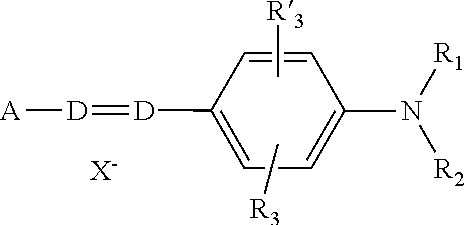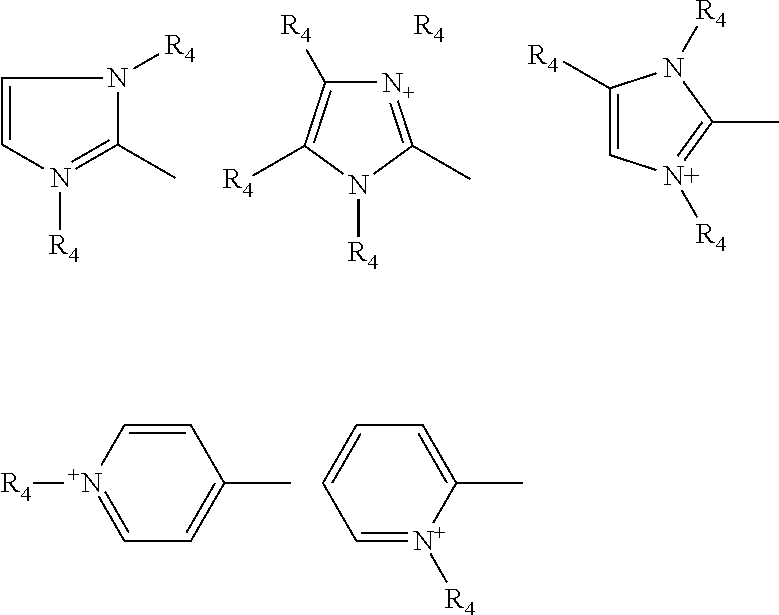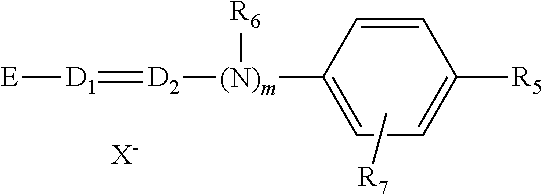Methods for altering the color and appearance of hair
a technology for hair and cuticles, applied in the field of methods for altering the color and appearance of hair, can solve the problems of hair breakage and loss, skin and/or scalp irritation, adversely affecting the condition of hair and hair cuticles, and preventing consumers from achieving the desired lightening or shade/color effect, etc., to minimize damage to hair and/or skin.
- Summary
- Abstract
- Description
- Claims
- Application Information
AI Technical Summary
Benefits of technology
Problems solved by technology
Method used
Image
Examples
example
[0494]
Color Altering Composition%ConcentrationINCI NameCommercial Nameactivitywt (%)Laureth-12Alkonat L 1201003(Oxiteno)Oleth-30Genapul U 300 F1002(Clariant)Sodium Cetearyl SulfateLanette e Granules961.5(Cognis)Cetearyl AlcoholN / A2Sodium SulfateN / A2Laureth-2Arylpon F1008(Cognis)PEG-4 RapeseedamideAmidet N92.3054(Kao)Trideceth-2Amidet A15 / Lao 151004(Kao)GlycerinGlycerine 48331003(Oleon)Polyquaternium-6Merquat 100 polymer402(Nalco)3-Nitro-p-HydroxyethylaminophenolNHEAP PREMIUM GRADE1000.3(Artec)4-Amino-3-Nitrophenol4-AMINO-3-NITRO PHENOL (IMEXINE1000.4FN)(Dragon Chemical)HC Yellow No. 9IMEXINE FAD1000.2(Chimex)HC Red No. 3HC Red 31000.6(Lowenstein)Cetyl HydroxyethylcelluloseNatrolsol Plus 330 C S1000.4(Ashland)MEAMonoethanolaminepH adjuster(Oxiteno)Deionized waterN / A100QS
Comparative Procedures A1 and A2
[0495]Virgin hair samples comprising 90% gray fibers were dyed with the color-altering composition, in the absence of a developer. The color-altering composition was left in contact wit...
PUM
| Property | Measurement | Unit |
|---|---|---|
| time period | aaaaa | aaaaa |
| partition coefficient | aaaaa | aaaaa |
| partition coefficients | aaaaa | aaaaa |
Abstract
Description
Claims
Application Information
 Login to View More
Login to View More - R&D
- Intellectual Property
- Life Sciences
- Materials
- Tech Scout
- Unparalleled Data Quality
- Higher Quality Content
- 60% Fewer Hallucinations
Browse by: Latest US Patents, China's latest patents, Technical Efficacy Thesaurus, Application Domain, Technology Topic, Popular Technical Reports.
© 2025 PatSnap. All rights reserved.Legal|Privacy policy|Modern Slavery Act Transparency Statement|Sitemap|About US| Contact US: help@patsnap.com



